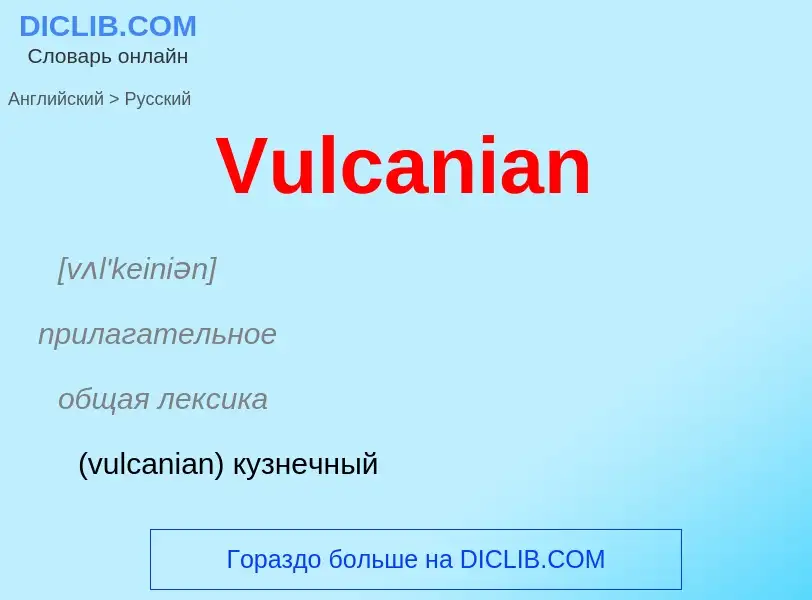Μετάφραση και ανάλυση λέξεων από την τεχνητή νοημοσύνη ChatGPT
Σε αυτήν τη σελίδα μπορείτε να λάβετε μια λεπτομερή ανάλυση μιας λέξης ή μιας φράσης, η οποία δημιουργήθηκε χρησιμοποιώντας το ChatGPT, την καλύτερη τεχνολογία τεχνητής νοημοσύνης μέχρι σήμερα:
- πώς χρησιμοποιείται η λέξη
- συχνότητα χρήσης
- χρησιμοποιείται πιο συχνά στον προφορικό ή γραπτό λόγο
- επιλογές μετάφρασης λέξεων
- παραδείγματα χρήσης (πολλές φράσεις με μετάφραση)
- ετυμολογία
Vulcanian - translation to Αγγλικά
[vʌl'keiniən]
прилагательное
общая лексика
(vulcanian) кузнечный
относящийся к металлу
(vulcanian) вулканический
мифология
относящийся к Вулкану
вулканов
общая лексика
вулканский
Ορισμός
Βικιπαίδεια
A Vulcanian eruption is a type of volcanic eruption characterized by a dense cloud of ash-laden gas exploding from the crater and rising high above the peak. They usually commence with phreatomagmatic eruptions which can be extremely noisy due to the rising magma heating water in the ground. This is usually followed by the explosive clearing of the vent and the eruption column is dirty grey to black as old weathered rocks are blasted out of the vent. As the vent clears, further ash clouds become grey-white and creamy in colour, with convolutions of the ash similar to those of Plinian eruptions.
The term Vulcanian was first used by Giuseppe Mercalli, witnessing the 1888–1890 eruptions on the island of Vulcano. His description of the eruption style is now used all over the world. Mercalli described Vulcanian eruptions as "...Explosions like cannon fire at irregular intervals..." Their explosive nature is due to increased silica content of the magma. Almost all types of magma can be involved, but magma with about 55% or more silica (e.g. basaltic andesite) is most common. Increasing silica levels increase the viscosity of the magma which means increased explosiveness.

